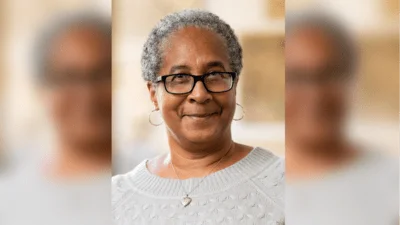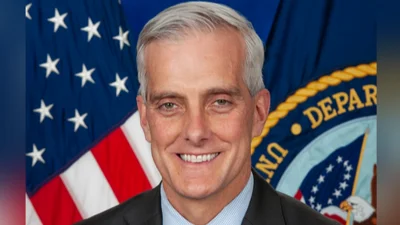Dr. Jamie Oberman | Frederick Breathe Free
Dr. Jamie Oberman | Frederick Breathe Free
- More than 40 million Americans suffer from allergies.
- Christmas decorations such as trees, wreaths, and ornaments can collect dust and mold.
- Holiday decorations that are pine-scented can provoke allergy and asthma symptoms.
“The sinus lining can be inflamed for a significant amount of time from allergens. We always test,” Dr. Oberman told the Maryland State Wire. “Not everybody who has inflammation has allergies, but you should always exclude that because if you do, it's easy to treat.”
According to WebMD, experts recommend choosing an artificial tree for the holiday season rather than a live one, as live Christmas trees could have mold or chemicals on them. Additionally, it’s recommended to wash ornaments before decorating, choose non-fabric ornaments, and store firewood outdoors until it's ready to be used.
The pine scent of organic Christmas trees and other decorations can also trigger allergy and asthma symptoms, according to Good RX. A chemical called terpene, which is in the sap of pine trees, can be irritating to the eyes, nose, and skin. Trees that are decorated with “flocking,” or fake snow, can also set off allergy and asthma symptoms because the flocking releases small particles into the air.
Another cause of allergy triggers during the holiday season is droppings from pests such as mice, cockroaches, and spiders, according to Good RX. Those pests like to nest in dark, damp locations such as basements and garages and often find decoration bins to be good hiding places because they aren't moved often. Droppings from those pests can set off allergy symptoms.
A lot of traveling, stress, and inconsistent usage of medications during the holiday season can also lead to worsened allergies, according to the American Academy of Allergy, Asthma & Immunology. Stress in particular can lead to asthma attacks.
According to Frederick Breathe Free's website, Dr. Jamie Oberman earned his bachelor's degree from Boston College. He pursued graduate studies at Tufts Medical School through the Navy Health Professions Scholarship Program. After completing medical school, he had a career in the Navy until his retirement in 2017, when he transitioned to comprehensive Ear, Nose, and Throat (ENT) medicine.






 Alerts Sign-up
Alerts Sign-up